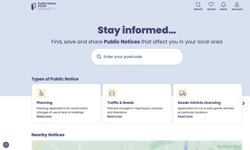The media tizzy about technological change has prompted a few years of gloom and depression about what can no longer be done because all the old models are broken. Two landmark events earlier this year took a different tack, with a focus on practical discussion of what could, would and does work. What emerged was an assertion of confidence in journalism as a trade alongside an awareness of how new tools can enhance the process. All of which led to a conclusion which many readers of this magazine may find rather challenging. But let’s begin at the very beginning as, I believe, it’s a very good place to start.
The news:rewired event organised by journalism.co.uk at London’s City University promised “Practical case studies from those who are pioneering new techniques in journalism” along with the chance to network and share ideas; while two days later the NUJ’s New Ways to Make Journalism Pay provided another forum for practical exchange. Both events are covered in detail in the links at the ‘Essential Guides’ box out at the end of this article.
Former Today editor Kevin Marsh, now head of the BBC College of Journalism, helped set the tone for news:rewired in a thoughtful opening address (it’s worth reading the full transcript on his blog). He said technical and social media skills cannot supplant traditional journalism skills. “A news organisation does not have to be peopled exclusively by pan-media journalists,” he said. “Media organisations need people with higher than average skills in specific areas.” He urged delegates to “stay outside the bubble” of “talking about an application rather than what to do with it”, and asserted his belief that journalism was still about two core activities: getting the facts and telling the facts.
There was some criticism that the event was spread too thin, but there is much to talk about, as evidenced by the intense and sometimes heated debate at the eight separate breakout sessions. Almost immediately, I had to make a decision about how I was going to use my own media tools during the day. I deliberately left my laptop at home, because I wanted to participate rather than simply commentate. And yet I logged on to the event’s Twitter feed via my iPhone during the opening session, just to see what other people’s take was. (I was also reassured to see that at least one of the talking heads present had had the same problems getting onto the wireless network as I had.) It provided a live picture of the collective audience response. But I shut down for the rest of the day, wary of the fact that I could easily spend all my time in the sessions I was in checking up on the sessions I wasn’t in!
I tell you that not to be self-indulgent, but to illustrate the point that the practical nature of the event ran deep. In fact the wealth of coverage of both events itself demonstrates the imagination and ingenuity on show in a new media landscape. Just look at Ian Wylie’s coverage of the NUJ event on his blog to get an example of what can be achieved – 3,000 words, 4 videos and an audio file, posted less than 24 hours after the event by one person who played an active part in it.
Making money
Some may find it a surprise that the NUJ event tackled more directly a question that was skirted around a little at news:rewired, namely how can journalists make money out of all this? Veteran Camden New Journal editor Eric Gordon made an important point when he said we should stop using the term “not-for-profit” when referring to certain business models. Not for profit means you go out of business. The important thing, he said, was “what you do with the profits”.
Gordon’s fascinating contribution, together with some equally engaging examples from thebusinessdesk.com editor David Parkin and liverpoolconfidential.com’s editor Angie Sammons, gave the lie to the fashionable notion that a ‘new’ concept of ‘entrepreneurialism’ needs to be ‘taught’ to today’s journalists. Journalism has always been about selling stories, whether commercially or creatively. Gordon, Parkin and Sammons knew their markets and were delivering something which bigger media companies weren’t. David Parkin’s thebusinessdesk.com is really what the Yorkshire Post business section online should be doing – but the executives at the Post didn’t see the point. Parkin’s success may have them cursing their short-sightedness.
And here we come to the conclusion I referred to at the beginning of this piece; the one that many readers may find a little challenging. Cut through the jargon and what’s emerging is the possibility of a media more connected to the communities and markets it serves, more responsive and more valued. The sterile debate about who is and who isn’t a journalist is being eased aside as people – Philip John’s “active citizens creating media” – use the opportunity offered by the availability of relatively inexpensive, easy-to-use technology to create a better journalism. And to put journalism, rather than the apparatus of journalism, at the centre of this new world.
Power to the people
I believe it’s what Greg Hadfield, veteran of Fleet Street print and the digital canvas of the Telegraph Media Group, was talking about when he said, “The future is individual journalists, not big media”. Hadfield elaborated on his remarks in a post on the Guardian’s Organ Grinder blog a few days after news:rewired, saying he believed “individual journalists – and the premium content they produce – must be even more central to everything newspapers do”. He went on: “For a long time, newspapers have not been only about "news"; nor have they been only on paper. They have been about selection and quality content; they have signposted other sources of information.”
What this means is that it’s the publishers and publishing executives and placeholders in the corporations that should be worried. They run machines that happen to sell media, but could just as well be selling widgets or tins of biscuits. They are the people who come out with rubbish such as “Photographers are just technicians, anyone can do that job” – a pearl of wisdom voiced by a senior member of a major publishing company recently. More and more of the media that is innovative, exciting, valued by its market and – increasingly – commercially successful is not only produced but run by the people who create the content.
I’m not naïve enough to be saying that we’re entering an era of workers’ control. Nor am I ignoring the fact that we live in a capitalist economy which means there is a natural tendency to monopoly. Big business is not going to go away, and it has traditionally demonstrated its ability to absorb the new in order to reshape and survive. But right now, big media is not as agile as the multitude of small projects springing up and punching above their weight. With more people understanding the value of journalism, there is more call for people to do journalism. It’s the content creators, for so long undervalued, who are at the heart of the change.
Kevin Marsh’s contribution underlines this point, and shows that when a big corporation does put the value of content at the centre of what it does, great things are possible.
Already there are plans to follow up both events. John Thompson, who runs journalism.co.uk, reckons “the demand is certainly there” and senior reporter Judith Townend said, “I hope we went some way to show how conferences can be productive events for newsroom journalists.” Site editor Laura Oliver put her finger on just one lightbulb moment when she said a personal highlight was seeing “the penny drop with many audience members that readers and bloggers writing for your website might be doing it for completely different reasons than you first thought and certainly might not share the same motivations as journalists.” And NUJ members, including this writer, are already planning a series of practical events to investigate further the possibilities for sustainable, independent local media projects.
All in all, a very positive start to the year.
Snapshots of the conversation
From news:rewired
“Don’t ever deceive yourself that big journalism is over. It isn’t and it never will be.”
Kevin Marsh, BBC College of Journalism
“Social media is good at creating discussion and taking people to content.”
Robin Goad, research director, Hitwise
“Maybe the future is in journalists becoming more active in doing things themselves, in collaboration with active citizens who produce media.”
Philip John, The Lichfield Blog
“The future is individual journalists, not big media.”
Greg Hadfield, Cogapp Director of Strategic Projects
From New Ways To Make Journalism Pay
“There has never been a time in history when so much journalism is being produced.”
Pamela Morton, NUJ assistant freelance organiser
“Our advantage is our ability to go TO our audience.”
David Parkin, editor, TheBusinessDesk.com
“We can survive on a small net profit that no big company would tolerate.”
Eric Gordon, Camden New Journal editor
“We’re not interested in selling banner ads for pennies. We sell a package.”
Angie Sammons, editor, LiverpoolConfidential.com
Dos and don’ts of monetising a website from James Fryer, deputy editor, SoGlos.com
Do:
* Be great! High quality content and a distinctive voice are key.
* Search engine optimise. Google generates 75% of traffic to the site’s 5,395 pages. Marry publishing and SEO through a bespoke CMS.
* Know your market and products. Make a clear offer to targeted advertisers based on in-depth knowledge of your readership. Keep the distinction between advertising and editorial clear.
* Establish a clear sales strategy. This includes promoting a level of content which print and radio media can’t compete with.
* Forge partnerships. Control the way your content is syndicated, but remember cash is almost always better than a contra deal.
Don't
* Compromise your model. Maintain the integrity of your editorial and your business plan.
* Be afraid to stand up for yourself. It’s easy for others to take your content.
* Spend all your time on Twitter. Ensure your social media activity is bringing you an audience and money.
* Rely on UGC. This decade will see a resurgence in professional journalism.
* Stop moving forwards. Respond to events and develop more quickly than large publishing houses.
Essential catch-up guides










